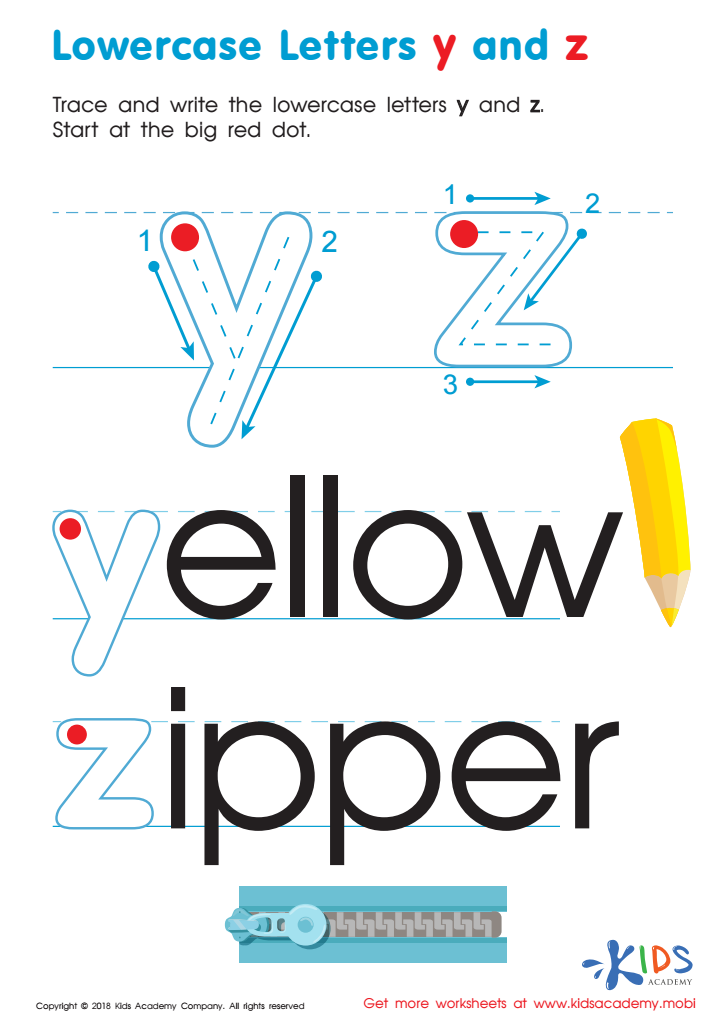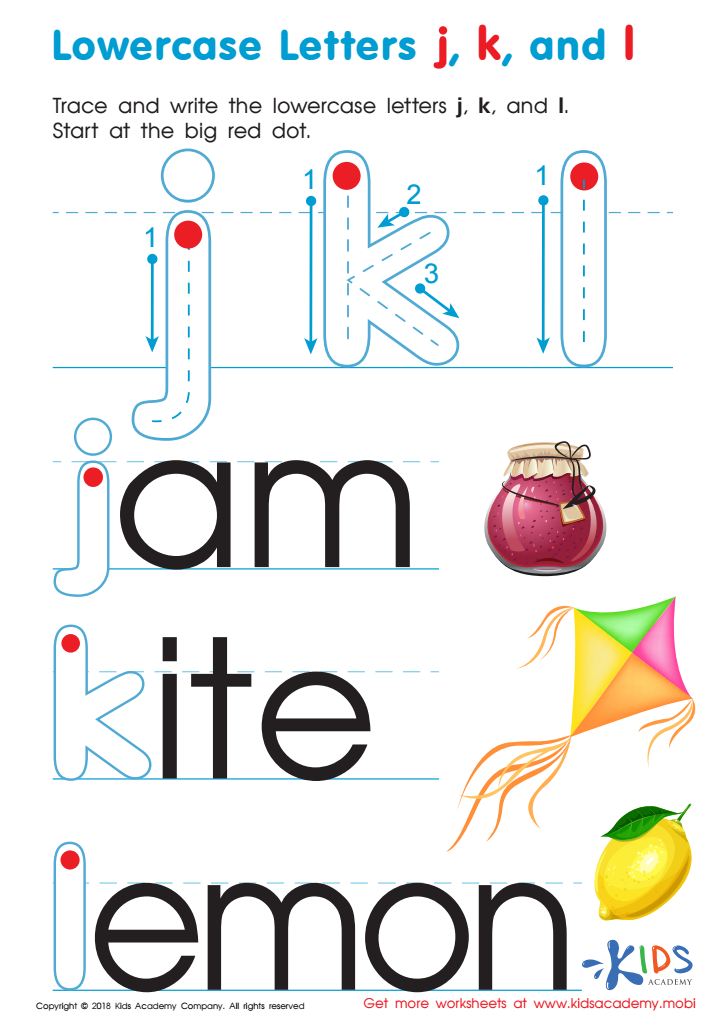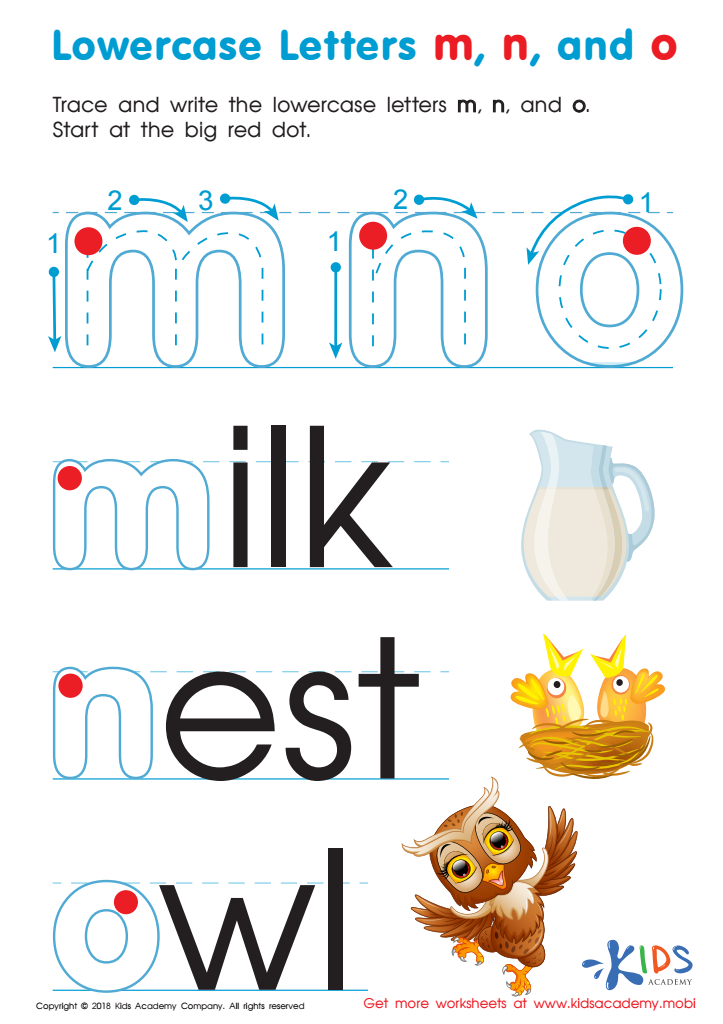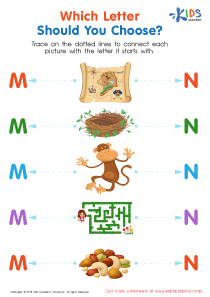Lowercase letter writing Normal Lowercase/Small Letters Worksheets for 4-Year-Olds
3 filtered results
-
From - To
Our "Normal Lowercase/Small Letters Worksheets for 4-Year-Olds" are specially designed to make learning the alphabet fun and engaging for young children. These printable worksheets help kids practice writing lowercase letters, enhancing their fine motor skills and letter recognition. Perfect for preschoolers, each worksheet provides ample space for tracing and writing letters, encouraging confidence and fluency in handwriting. The colorful and captivating designs hold children's attention and make the learning experience enjoyable. Ideal for both classroom use and homeschooling, these worksheets are a great resource for building early literacy skills in a playful, educational way.


Lowercase Letters y z Worksheet


Lowercase Letters j k l Worksheet


Lowercase Letters m n o Worksheet
Parents and teachers should emphasize lowercase letter writing for 4-year-olds as it is a crucial aspect of early literacy development. Mastery of lowercase letters aids in the recognition and comprehension of written text, given that most of what we read in books, newspapers, and on digital screens generally consists of lowercase letters, except for specific situations like proper nouns or the start of sentences. Starting early with lowercase forms helps children become proficient readers and writers sooner.
Also, learning to write lowercase letters involves fine motor skills development, such as hand-eye coordination and control, which are foundational for all writing activities. Activities designed to practice these skills can include tracing, copying, or writing spontaneously, building the muscular strength and dexterity needed for more complex tasks.
Additionally, instilling this skill aligns well with the cognitive and developmental stages of early learners. At around 4 years old, children are naturally curious and enthusiastic about new skills. By teaching them something they will consistently use, we empower them with confidence and a sense of accomplishment. Early familiarity with lowercase letters makes decoding later reading tasks more intuitive and less frustrating, enriching their entire educational experience.
By prioritizing the basics of lowercase letter writing early on, we lay the groundwork for more advanced literacy skills, setting the stage for lifelong learning and academic success.
 Assign to My Students
Assign to My Students










